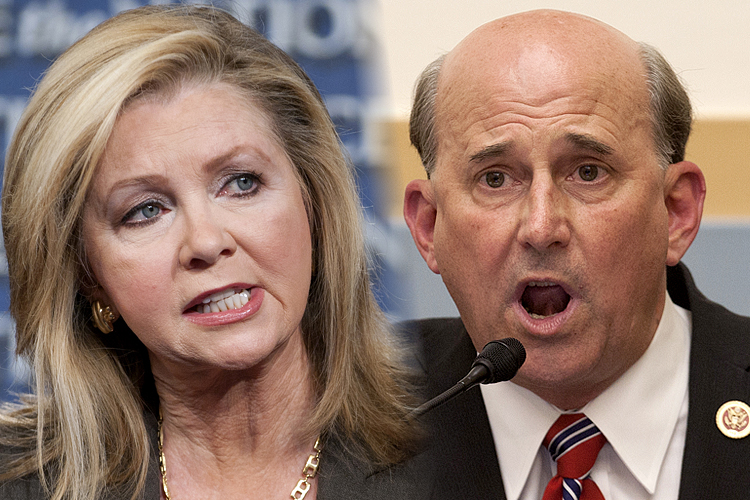Lindsey Graham resurrected his politically doomed 20-week abortion ban on Tuesday because he is facing a tough primary in South Carolina and his base pretty much hates his guts. So he’s tossing some anti-choice chum in the water to try to seem relevant, which in the GOP right now means “being a virulently anti-science misogynist.” (Or hating poor people.)
An identical ban passed the House last year, but the “Pain-Capable Unborn Child Protection Act” stands very little chance of going anywhere in the Senate. Which is good! It’s good when Democrats can be good at things and block dangerous legislation! And it was pretty great to watch Richard Blumenthal and Barbara Boxer condemn the measure using clear and unflinching language about abortion care being fundamental to women’s health and autonomy. It actually really matters when politicians name abortion explicitly rather than speaking obliquely about “choice.”
But what is still missing from the debate is the broader reality of why it’s essential that abortion remain legal and widely available at and after 20 weeks. In her critique of the ban, Democrats shared heartbreaking stories of parents faced with devastating fetal anomalies at 19 weeks and wanted pregnancies that dangerously compromised a woman’s health. These are some of the very real reasons that women terminate pregnancies at or after 20 weeks, but the truth is that women seek the procedure at this stage of a pregnancy for incredibly complicated and personal reasons, and all of them are valid. While only around 1 percent of abortions occur after 20 weeks, as a growing number of states pass restrictions that shutter clinics, target physicians or otherwise aim to put abortion out of reach, more and more women who need this care will be forced to access it later in their pregnancies.
Stories of devastating anomalies and parents making impossible choices are real and need to be heard, but they also tend to dominate how we talk about 20-week abortion bans. In order to fully understand the consequences of the current assault on basic reproductive rights, we also need to talk about the other reasons women have abortions at or after 20 weeks. Otherwise, ignorant antiabortion lawmakers like Marsha Blackburn, Trent Franks and Louie Gohmert get to define the terms of the debate and trumpet the narrow health exceptions as sensible compromise.
Overlapping restrictions — at a moment when many women and families are struggling just to meet their most basic needs in terms of food and housing — have created a mess of red tape that women must wade through to get the care they want, need and are (ostensibly) legally entitled to. Take mandatory ultrasound laws: Research has shown that forcing a woman to undergo a narrated ultrasound prior to terminating her pregnancy will not change her mind about the procedure, but it will make abortion more expensive by requiring that the physician performing the abortion also administer the ultrasound.
Sweeping restrictions on medication abortions have meant that early stage non-surgical terminations are increasingly out of reach as state legislatures force doctors to follow outdated protocol when prescribing this medication. Mandatory waiting periods — in some states up to 72 hours — force women to take time off work as well as find accommodations and childcare while they are busy meeting the requirements imposed on them by their political representatives. And if you live in a state that bans insurance coverage of abortion care — and if your lawmakers have passed any of these other restrictions, the odds are better than good that your state has an insurance ban in place — you are left waiting weeks to save up for the procedure to pay for it out of pocket.
Things only get more complicated for women who live in states with a single clinic, or who live hours away from the nearest provider.
It was encouraging to see lawmakers like Boxer stand on the Senate floor and decry Graham’s transparent attempt to drum up his anti-choice base with a medically dangerous abortion ban, but the power of their platform is telling the stories — all the stories — that reflect what’s happening on the ground. They’re getting better at it, but there’s more work to be done to talk openly and honestly about women’s unique experiences and medical needs.
A wanted pregnancy that ends in termination at 20 weeks is a tragedy for that parent, but, sadly, we can’t predict or prevent such complications. But putting a woman in a position where she wants to terminate a pregnancy at eight weeks but spends the next 11 weeks saving up for the procedure? Or the woman who felt so much shame and stigma about wanting an abortion that she waited to get that care for fear of reprisal? Well, those are tragedies, too. And those stories needs to be heard.

